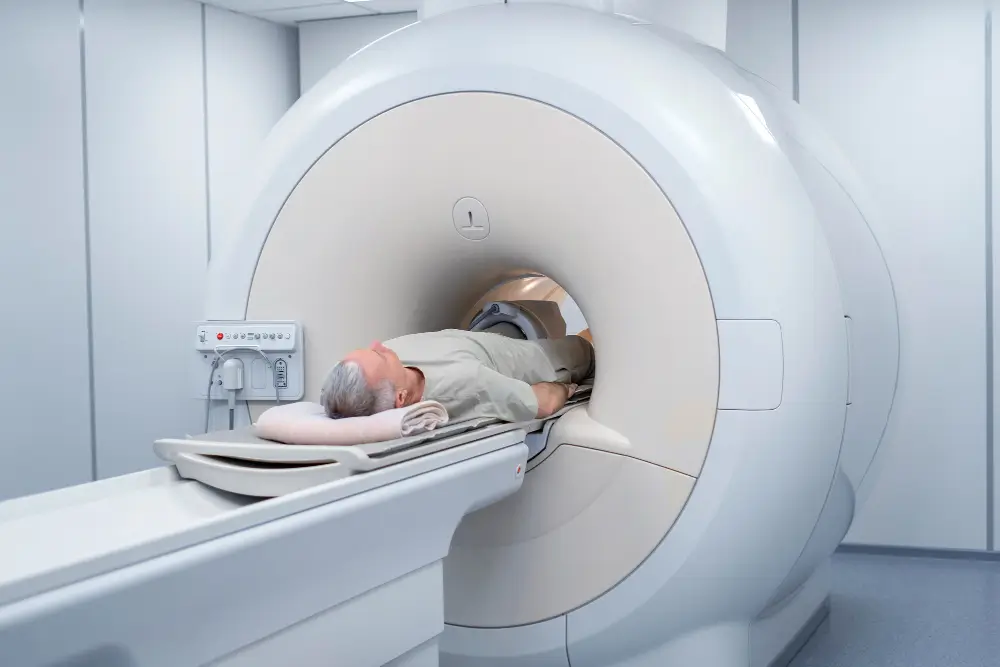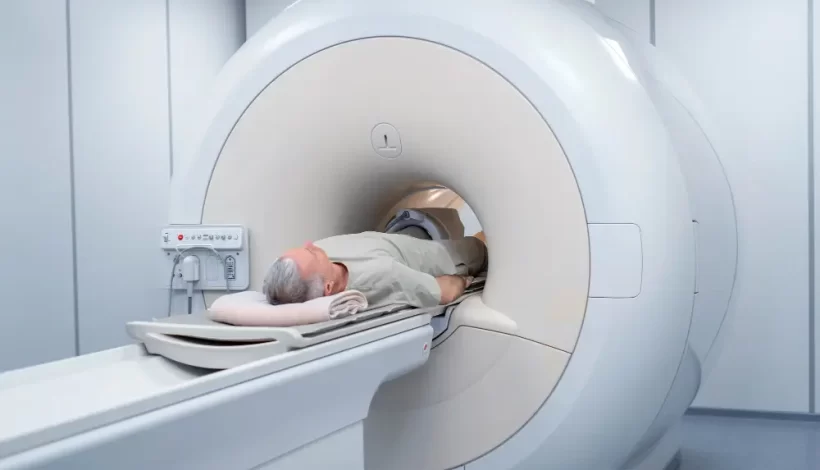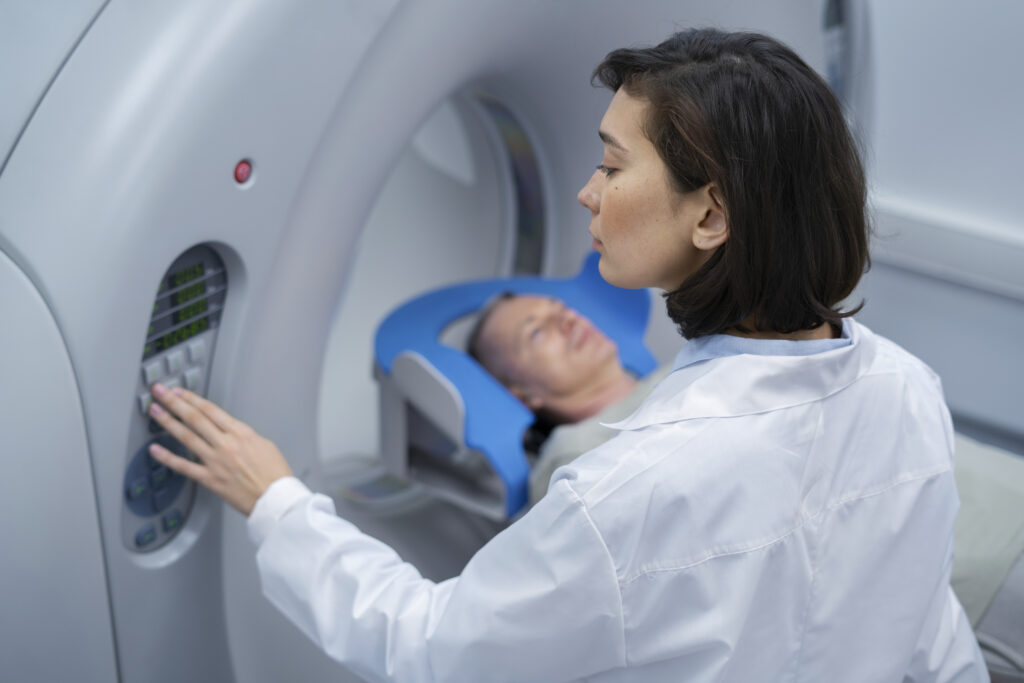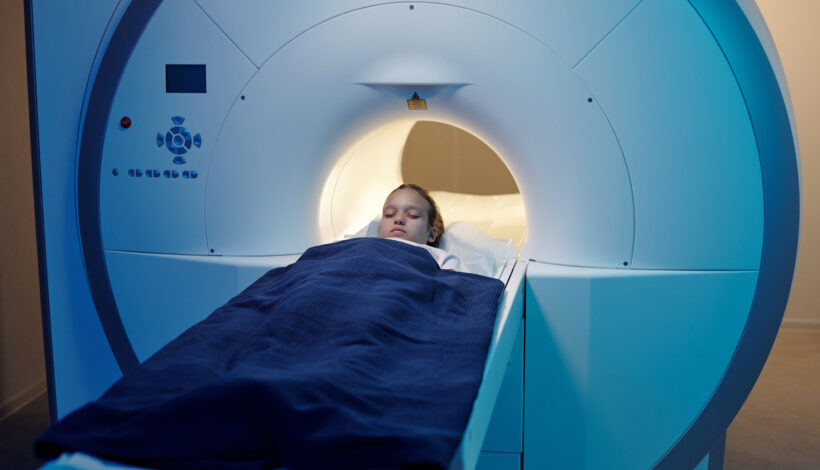Magnetic Resonance Imaging (MRI) is a safe and non-invasive diagnostic tool that provides detailed images of your body’s internal structures. If you’re scheduled for an MRI scan in Mumbai, it’s natural to have questions about what to expect and how to prepare. This guide will walk you through the preparation process to ensure a smooth and stress-free experience.
What is an MRI Scan?
MRI scans use strong magnetic fields and radio waves to create detailed images of organs, tissues, and bones. Unlike X-rays or CT scans, MRI does not use ionizing radiation, making it a preferred choice for many conditions.
Common uses for MRI scans include:
- Diagnosing brain and spinal cord conditions.
- Detecting joint injuries or abnormalities.
- Evaluating organ health, such as the heart, liver, or kidneys.
- Monitoring tumors or other medical conditions.
When selecting a center, consider factors like proximity, cost, and availability of open or advanced MRI machines.
How to Prepare for Your MRI Scan
1. Discuss Your Medical History
Before the scan, inform your doctor and the radiologist about:
- Any metal implants, pacemakers, or prosthetics in your body.
- Previous surgeries or medical conditions.
- Allergies or claustrophobia.
- Pregnancy, if applicable.
This information helps the medical team determine if any special precautions are necessary.
2. Follow Fasting Instructions (if required)
For certain types of MRI scans, such as abdominal imaging, you may be asked to avoid eating or drinking for 4-6 hours before the procedure. Your doctor will provide specific guidelines.
3. Wear Comfortable Clothing
Choose loose, metal-free clothing to wear during the scan. Metal objects like zippers, buttons, or jewelry can interfere with the magnetic field. Many centers provide a gown for patients to wear during the scan.
4. Remove Metal Objects
Before entering the MRI room, you’ll need to remove the following:
- Jewelry, watches, and hairpins.
- Eyeglasses and hearing aids.
- Wallets, credit cards, and any items containing metal.
5. Arrive Early
Plan to arrive at least 15-30 minutes before your scheduled appointment. This allows time for registration, briefing, and addressing any last-minute questions.
What to Expect During the MRI Scan
1. Pre-Scan Preparation
- You’ll be asked to lie on a movable table that slides into the MRI machine.
- A technician may use cushions or straps to help you remain still during the scan.
2. Contrast Agent (if required)
For some scans, a contrast agent may be injected into your vein to enhance image clarity. Let your doctor know if you’ve had any allergic reactions to contrast agents in the past.
3. The Scanning Process
- The machine will produce loud tapping or thumping noises during the scan. You’ll be given earplugs or headphones to reduce the noise.
- The procedure typically lasts 30-60 minutes, depending on the area being examined.
4. Staying Still
It’s crucial to remain as still as possible during the scan to ensure clear images. If you feel discomfort, you can communicate with the technician through an intercom system.

Tips for a Stress-Free MRI Experience
1. Overcoming Claustrophobia
If you’re nervous about being in a confined space, consider these tips:
- Opt for an open MRI machine if available.
- Practice relaxation techniques like deep breathing.
- Request a sedative from your doctor if needed.
2. Bring a Friend or Family Member
Having a loved one accompany you can provide reassurance and help reduce anxiety.
Ask Questions
Don’t hesitate to ask the staff about the procedure, noise levels, or any concerns you may have.
After the MRI Scan
- Immediate Resumption of Activities: In most cases, you can return to your normal routine immediately after the scan.
- Contrast Agent Side Effects: If a contrast agent was used, drink plenty of water to flush it out of your system.
- Results Timeline: Your doctor will receive the results within 24-48 hours and discuss the findings with you.
FAQs About MRI Scans in Mumbai
Q1: Is an MRI scan painful?
A: No, MRI scans are painless. However, you may experience slight discomfort from lying still for an extended period.
Q2: How much does an MRI scan cost in Mumbai?
A: The cost of an MRI scan in Mumbai ranges from ₹5,000 to ₹25,000, depending on the type of scan and the facility.
Q3: Can I get an MRI if I have a pacemaker?
A: Traditional MRI machines may not be safe for patients with pacemakers. However, newer MRI-compatible pacemakers and specialized machines are available at select centers.
Q4: Are MRI scans safe during pregnancy?
A: MRI scans are generally safe during pregnancy, but always consult your doctor before undergoing the procedure.
Q5: What should I do if I feel claustrophobic?
A: Inform the technician or doctor beforehand. Open MRI machines or mild sedatives can help alleviate claustrophobia.
Conclusion
Preparing for an MRI scan in Mumbai doesn’t have to be stressful. By understanding the procedure, choosing a reputable diagnostic center, and following the preparation guidelines, you can ensure a smooth and comfortable experience.
![]()





